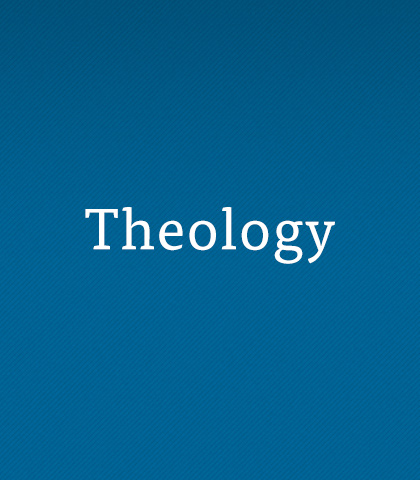Straight Talk about Predestination
Examine Romans 9 with Pastor Chuck Swindoll to understand four great truths on predestination. Reflect on God’s sovereign choice and irresistible grace.

What words come to mind when you hear the term theology? Dry…Dreary…Doubtful…DULL? You’re not alone.
Too often we don’t realize that theology—thinking about God—is an intimate part of our everyday lives, rather than something that takes place in ivory towers crowded with bearded men crouched over dusty books. We each engage in theology because we each have a set of beliefs about God. But rather than being content with our ideas about God as they now stand, we should each have a desire to know God better than we do today. If you’ve got that desire, then you’re ready to do theology!
Let these resources point the way to a faith more deeply connected with who God actually says He is.
Examine Romans 9 with Pastor Chuck Swindoll to understand four great truths on predestination. Reflect on God’s sovereign choice and irresistible grace.
The road to maturity is often long and difficult, but the rewards are well worth the journey, as you become a person who has a heart for both God and mankind.
Dig deeply into Abraham’s story with Pastor Chuck Swindoll. Discover how faith is based on knowledge and strengthened in waiting.
Learn with Pastor Chuck Swindoll how Abraham’s and David’s lives demonstrate that justification comes by faith apart from works and the law (Romans 4:1–13).
Join Pastor Chuck Swindoll in a look at Romans 3. Examine our lifeless condition without Christ and assess the situation for yourself.
Pastor Chuck Swindoll discusses how “religion” is a counterfeit for genuine spiritual growth. He unpacks the traditions and works that the Jews relied on instead of faith in the Messiah (Romans 2).
Romans 2 focuses on the righteous judgment of God. Pastor Chuck Swindoll teaches that God alone knows the hearts of all people. He is the righteous judge, not us.
Suppressing the truth incites the wrath of God, but embracing the truth invites the righteousness of God. Tune in to hear Pastor Chuck Swindoll teach on the idolatry, immorality, and iniquity of the early church as seen in Romans 1.
Come to terms with the reality of depravity through Pastor Chuck Swindoll’s message on Romans 1:18–25. Discover the biblical meaning of God’s wrath and better understand His character.
Reflect on the simplest and greatest news with Pastor Chuck Swindoll. Listen as he expounds upon Paul’s famous words in Romans 1:16, “For I am not ashamed of this Good News about Christ. It is the power of God at work, saving everyone who believes.”